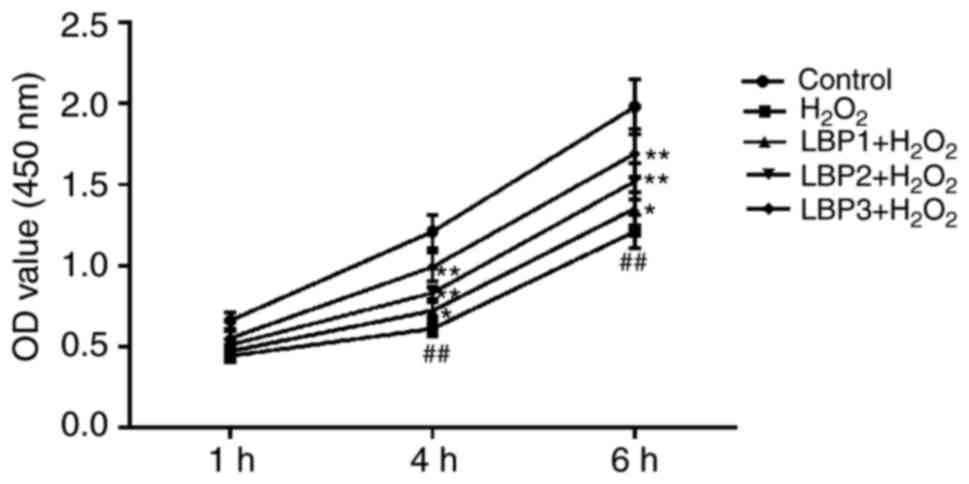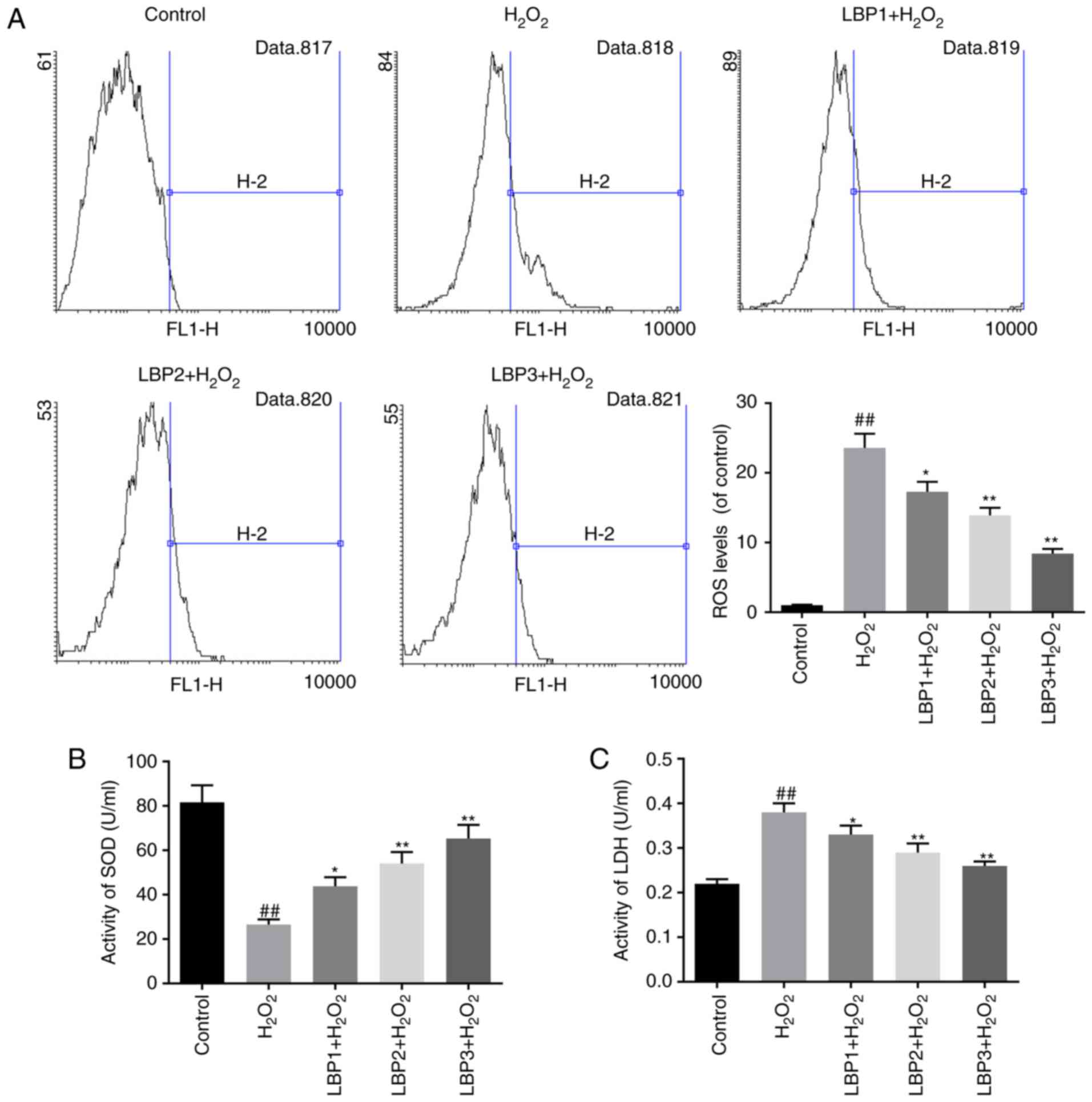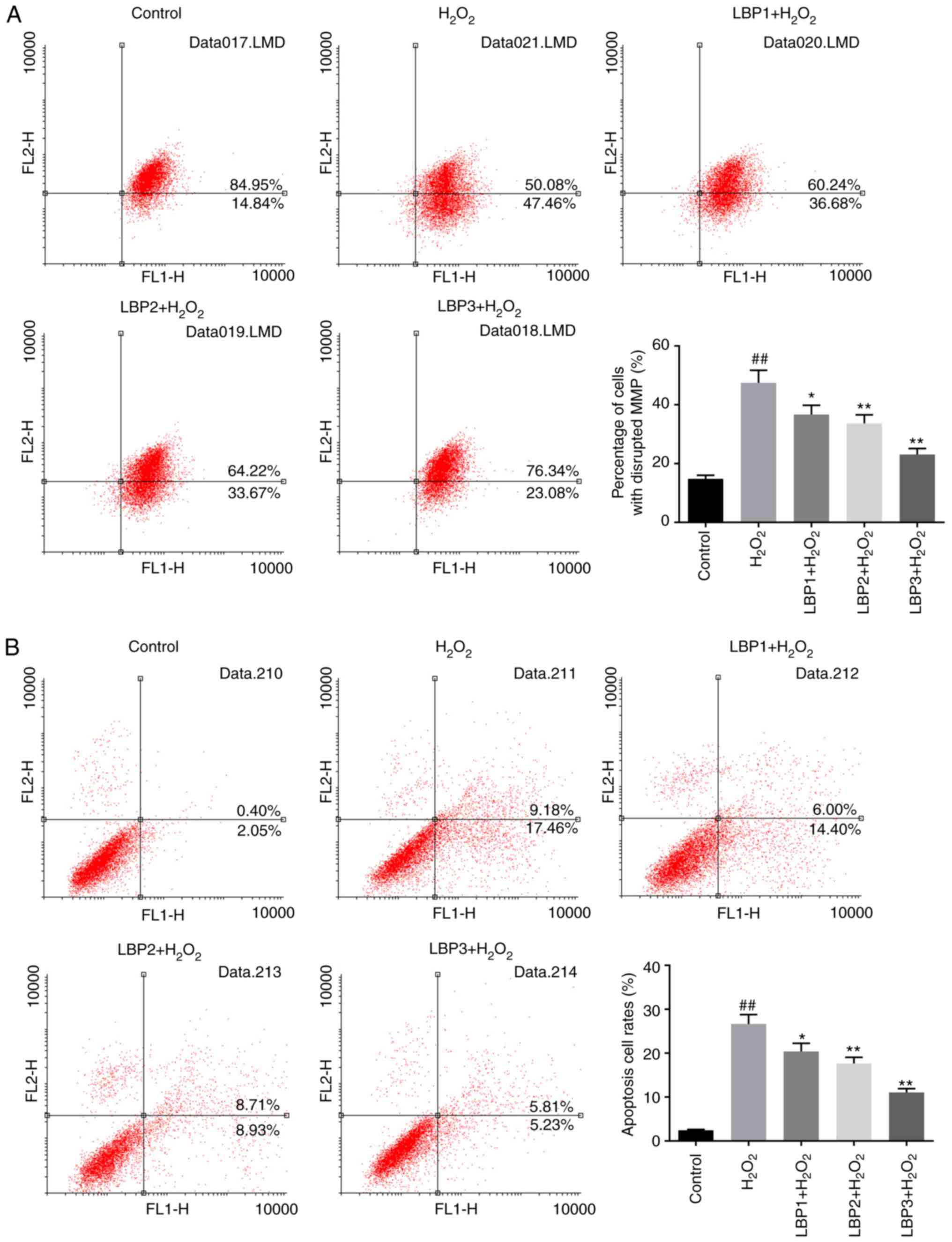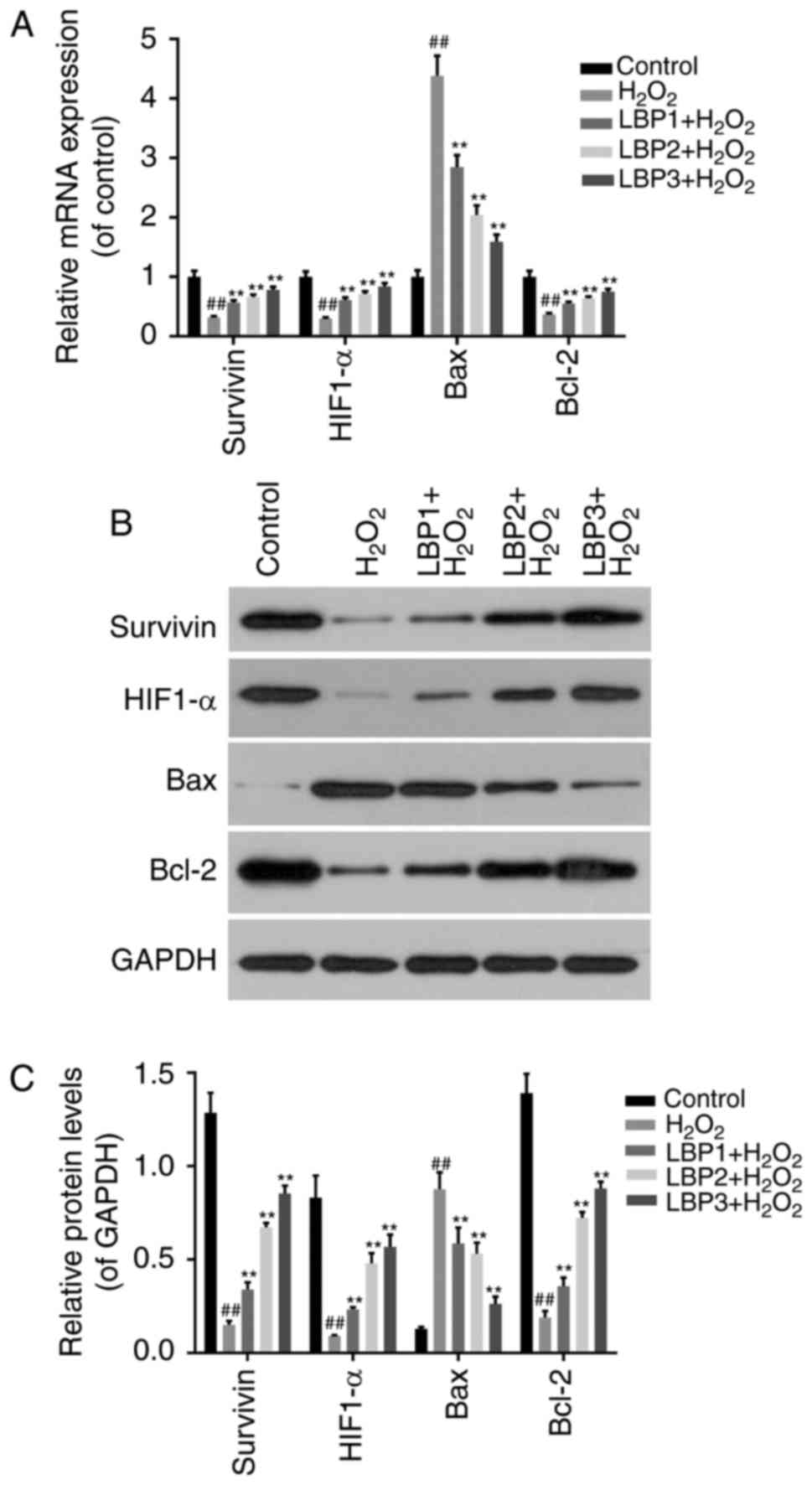|
1
|
Kim YM, Chaiworapongsa T, Gomez R, Bujold
E, Yoon BH, Rotmensch S, Thaler HT and Romero R: Failure of
physiologic transformation of the spiral arteries in the placental
bed in preterm premature rupture of membranes. Am J Obstet Gynecol.
187:1137–1142. 2002. View Article : Google Scholar : PubMed/NCBI
|
|
2
|
Pardi G, Marconi AM and Cetin I:
Pathophysiology of intrauterine growth retardation: Role of the
placenta. Acta Paediatr Suppl. 423:170–172. 1997. View Article : Google Scholar : PubMed/NCBI
|
|
3
|
Hauspurg A, Ying W, Hubel CA, Michos ED
and Ouyang P: Adverse pregnancy outcomes and future maternal
cardiovascular disease. Clin Cardiol. 41:239–246. 2018. View Article : Google Scholar : PubMed/NCBI
|
|
4
|
Hannan NJ, Binder NK, Beard S, Nguyen TV,
Kaitu'u-Lino TJ and Tong S: Melatonin enhances antioxidant
molecules in the placenta, reduces secretion of soluble fms-like
tyrosine kinase 1 (sFLT) from primary trophoblast but does not
rescue endothelial dysfunction: An evaluation of its potential to
treat preeclampsia. PLoS One. 13:e01870822018. View Article : Google Scholar : PubMed/NCBI
|
|
5
|
Wan J, Hu Z, Zeng K, Yin Y, Zhao M, Chen M
and Chen Q: The reduction in circulating levels of estrogen and
progesterone in women with preeclampsia. Pregnancy Hypertens.
11:18–25. 2018. View Article : Google Scholar : PubMed/NCBI
|
|
6
|
Nagai R, Watanabe K, Wakatsuki A, Hamada
F, Shinohara K, Hayashi Y, Imamura R and Fukaya T: Melatonin
preserves fetal growth in rats by protecting against
ischemia/reperfusion-induced oxidative/nitrosative mitochondrial
damage in the placenta. J Pineal Res. 45:271–276. 2008. View Article : Google Scholar : PubMed/NCBI
|
|
7
|
Okatani Y, Wakatsuki A, Shinohara K,
Taniguchi K and Fukaya T: Melatonin protects against oxidative
mitochondrial damage induced in rat placenta by ischemia and
reperfusion. J Pineal Res. 31:173–178. 2001. View Article : Google Scholar : PubMed/NCBI
|
|
8
|
Aris A, Benali S, Ouellet A, Moutquin JM
and Leblanc S: Potential biomarkers of preeclampsia: Inverse
correlation between hydrogen peroxide and nitric oxide early in
maternal circulation and at term in placenta of women with
preeclampsia. Placenta. 30:342–347. 2009. View Article : Google Scholar : PubMed/NCBI
|
|
9
|
Straszewski-Chavez SL, Abrahams VM and Mor
G: The role of apoptosis in the regulation of trophoblast survival
and differentiation during pregnancy. Endocr Rev. 26:877–897. 2005.
View Article : Google Scholar : PubMed/NCBI
|
|
10
|
Fukushima K, Miyamoto S, Tsukimori K,
Kobayashi H, Seki H, Takeda S, Kensuke E, Ohtani K, Shibuya M and
Nakano H: Tumor necrosis factor and vascular endothelial growth
factor induce endothelial integrin repertories, regulating
endovascular differentiation and apoptosis in a human extravillous
trophoblast cell line. Biol Reprod. 73:172–179. 2005. View Article : Google Scholar : PubMed/NCBI
|
|
11
|
Huppertz B, Frank HG, Kingdom JC, Reister
F and Kaufmann P: Villous cytotrophoblast regulation of the
syncytial apoptotic cascade in the human placenta. Histochem Cell
Biol. 110:495–508. 1998. View Article : Google Scholar : PubMed/NCBI
|
|
12
|
Lewis MP, Clements M, Takeda S, Kirby PL,
Seki H, Lonsdale LB, Sullivan MH, Elder MG and White JO: Partial
characterization of an immortalized human trophoblast cell-line,
TCL-1, which possesses a CSF-1 autocrine loop. Placenta.
17:137–146. 1996. View Article : Google Scholar : PubMed/NCBI
|
|
13
|
Smith SC, Baker PN and Symonds EM:
Increased placental apoptosis in intrauterine growth restriction.
Am J Obstet Gynecol. 177:1395–1401. 1997. View Article : Google Scholar : PubMed/NCBI
|
|
14
|
Crocker IP, Cooper S, Ong SC and Baker PN:
Differences in apoptotic susceptibility of cytotrophoblasts and
syncytiotrophoblasts in normal pregnancy to those complicated with
preeclampsia and intrauterine growth restriction. Am J Pathol.
162:637–643. 2003. View Article : Google Scholar : PubMed/NCBI
|
|
15
|
Ishihara N, Matsuo H, Murakoshi H,
Laoag-Fernandez JB, Samoto T and Maruo T: Increased apoptosis in
the syncytiotrophoblast in human term placentas complicated by
either preeclampsia or intrauterine growth retardation. Am J Obstet
Gynecol. 186:158–166. 2002. View Article : Google Scholar : PubMed/NCBI
|
|
16
|
DiFederico E, Genbacev O and Fisher SJ:
Preeclampsia is associated with widespread apoptosis of placental
cytotrophoblasts within the uterine wall. Am J Pathol. 155:293–301.
1999. View Article : Google Scholar : PubMed/NCBI
|
|
17
|
Moindjie H, Santos ED, Gouesse RJ,
Swierkowski-Blanchard N, Serazin V, Barnea ER, Vialard F and
Dieudonne MN: Preimplantation factor is an anti-apoptotic effector
in human trophoblasts involving p53 signaling pathway. Cell Death
Dis. 7:e25042016. View Article : Google Scholar : PubMed/NCBI
|
|
18
|
Wang Z, Liu Y, Sun Y, Mou Q, Wang B, Zhang
Y and Huang L: Structural characterization of LbGp1 from the fruits
of Lycium barbarum L. Food Chem. 159:137–142. 2014.
View Article : Google Scholar : PubMed/NCBI
|
|
19
|
Varoni MV, Gadau SD, Pasciu V, Baralla E,
Serra E, Palomba D and Demontis MP: Investigation of the effects of
Lycium barbarum polysaccharides against cadmium induced
damage in testis. Exp Mol Pathol. 103:26–32. 2017. View Article : Google Scholar : PubMed/NCBI
|
|
20
|
Po KK, Leung JW, Chan JN, Fung TK,
Sánchez-Vidaña DI, Sin EL, So KF, Lau BW and Siu AM: Protective
effect of Lycium Barbarum polysaccharides on
dextromethorphan-induced mood impairment and neurogenesis
suppression. Brain Res Bull. 134:10–17. 2017. View Article : Google Scholar : PubMed/NCBI
|
|
21
|
Liu WJ, Jiang HF, Rehman FU, Zhang JW,
Chang Y, Jing L and Zhang JZ: Lycium barbarum
polysaccharides decrease hyperglycemia-aggravated ischemic brain
injury through maintaining mitochondrial fission and fusion
balance. Int J Biol Sci. 13:901–910. 2017. View Article : Google Scholar : PubMed/NCBI
|
|
22
|
Liu L, Lao W, Ji QS, Yang ZH, Yu GC and
Zhong JX: Lycium barbarum polysaccharides protected human
retinal pigment epithelial cells against oxidative stress-induced
apoptosis. Int J Ophthalmol. 8:11–16. 2015.PubMed/NCBI
|
|
23
|
Zhang XJ, Yu HY, Cai YJ and Ke M:
Lycium barbarum polysaccharides inhibit proliferation and
migration of bladder cancer cell lines BIU87 by suppressing
Pi3K/AKT pathway. Oncotarget. 8:5936–5942. 2017.PubMed/NCBI
|
|
24
|
Tian JY, Chen WW, Cui J, Wang H, Chao C,
Lu ZY and Bi YY: Effect of Lycium bararum polysaccharides on
methylmercury-induced abnormal differentiation of hippocampal stem
cells. Exp Ther Med. 12:683–689. 2016. View Article : Google Scholar : PubMed/NCBI
|
|
25
|
Livak KJ and Schmittgen TD: Analysis of
relative gene expression data using real-time quantitative PCR and
the 2(-Delta Delta C(T)) method. Methods. 25:402–408. 2001.
View Article : Google Scholar : PubMed/NCBI
|
|
26
|
Datta S and Chakrabarti N: Age related
rise in lactate and its correlation with lactate dehydrogenase
(LDH) status in post-mitochondrial fractions isolated from
different regions of brain in mice. Neurochem Int. 118:23–33. 2018.
View Article : Google Scholar : PubMed/NCBI
|
|
27
|
Shan T, Shan T, Liu F, Zheng H and Li G:
Effects of Lycium barbarum polysaccharides on the damage to
human endometrial stromal cells induced by hydrogen peroxide. Mol
Med Rep. 15:879–884. 2017. View Article : Google Scholar : PubMed/NCBI
|
|
28
|
Gao Y, Wei Y, Wang Y, Gao F and Chen Z:
Lycium barbarum: A traditional chinese herb and a promising
anti-aging agent. Aging Dis. 8:778–791. 2017. View Article : Google Scholar : PubMed/NCBI
|
|
29
|
Lin CL, Wang CC, Chang SC, Inbaraj BS and
Chen BH: Antioxidative activity of polysaccharide fractions
isolated from Lycium barbarum Linnaeus. Int J Biol Macromol.
45:146–151. 2009. View Article : Google Scholar : PubMed/NCBI
|
|
30
|
Bittner L, Wyck S, Herrera C, Siuda M,
Wrenzycki C, van Loon B and Bollwein H: Negative effects of
oxidative stress in bovine spermatozoa on in vitro development and
DNA integrity of embryos. Reprod Fertil Dev. May 1–2018.(Epub ahead
of print). View Article : Google Scholar : PubMed/NCBI
|
|
31
|
Che X, Zhao Q and Li D: Expression of
thioredoxin-2 in human lens epithelial cells with oxidative damage
and its significance. Zhong Nan Da Xue Xue Bao Yi Xue Ban.
43:253–259. 2018.(In Chinese). PubMed/NCBI
|
|
32
|
Kupsco A and Schlenk D: Oxidative stress,
unfolded protein response, and apoptosis in developmental toxicity.
Int Rev Cell Mol Biol. 317:1–66. 2015. View Article : Google Scholar : PubMed/NCBI
|
|
33
|
Poston L, Igosheva N, Mistry HD, Seed PT,
Shennan AH, Rana S, Karumanchi SA and Chappell LC: Role of
oxidative stress and antioxidant supplementation in pregnancy
disorders. Am J Clin Nutr. 94 6 Suppl:1980S–1985S. 2011. View Article : Google Scholar : PubMed/NCBI
|
|
34
|
Deepa D, Jayakumari N and Thomas SV:
Oxidative stress is increased in women with epilepsy: Is it a
potential mechanism of anti-epileptic drug-induced teratogenesis?
Ann Indian Acad Neurol. 15:281–286. 2012. View Article : Google Scholar : PubMed/NCBI
|
|
35
|
Kovacic P and Somanathan R: Mechanism of
teratogenesis: Electron transfer, reactive oxygen species, and
antioxidants. Birth Defects Res C Embryo Today. 78:308–325. 2006.
View Article : Google Scholar : PubMed/NCBI
|
|
36
|
Burton GJ and Jauniaux E: Placental
oxidative stress: From miscarriage to preeclampsia. J Soc Gynecol
Investig. 11:342–352. 2004. View Article : Google Scholar : PubMed/NCBI
|
|
37
|
Su Y, Han W and Cao Y: Association between
activities of SOD, MDA and Na+-K+-ATPase in peripheral blood of
patients with acute myocardial infarction and the complication of
varying degrees of arrhythmia. Hellenic J Cardiol. Apr
24–2018.(Epub ahead of print).
|
|
38
|
Schoppet M, Tailhades J, Kulkarni K and
Cryle MJ: Precursor Manipulation in Glycopeptide Antibiotic
Biosynthesis: Are β-Amino Acids Compatible with the Oxidative
Cyclization Cascade? J Org Chem. Apr 30–2018.(Epub ahead of print).
View Article : Google Scholar : PubMed/NCBI
|
|
39
|
Chen L, Li W, Qi D and Wang D: Lycium
barbarum polysaccharide protects against LPS-induced ARDS by
inhibiting apoptosis, oxidative stress, and inflammation in
pulmonary endothelial cells. Free Radic Res. 52:480–490. 2018.
View Article : Google Scholar : PubMed/NCBI
|
|
40
|
Varoni MV, Pasciu V, Gadau SD, Baralla E,
Serra E, Palomba D and Demontis MP: Possible antioxidant effect of
Lycium barbarum polysaccharides on hepatic cadmium-induced
oxidative stress in rats. Environ Sci Pollut Res Int. 24:2946–2955.
2017. View Article : Google Scholar : PubMed/NCBI
|
|
41
|
Sinha K, Das J, Pal PB and Sil PC:
Oxidative stress: The mitochondria-dependent and
mitochondria-independent pathways of apoptosis. Arch Toxicol.
87:1157–1180. 2013. View Article : Google Scholar : PubMed/NCBI
|
|
42
|
Chen S, Lv X, Hu B, Zhao L, Li S, Li Z,
Qing X, Liu H, Xu J and Shao Z: Critical contribution of RIPK1
mediated mitochondrial dysfunction and oxidative stress to
compression-induced rat nucleus pulposus cells necroptosis and
apoptosis. Apoptosis. Apr 28–2018.(Epub ahead of print). View Article : Google Scholar
|
|
43
|
Ahmadian E, Khosroushahi AY, Eftekhari A,
Farajnia S, Babaei H and Eghbal MA: Novel angiotensin receptor
blocker, azilsartan induces oxidative stress and NFkB-mediated
apoptosis in hepatocellular carcinoma cell line HepG2. Biomed
Pharmacother. 99:939–946. 2018. View Article : Google Scholar : PubMed/NCBI
|
|
44
|
Liang J, Wu S, Xie W and He H: Ketamine
ameliorates oxidative stress-induced apoptosis in experimental
traumatic brain injury via the Nrf2 pathway. Drug Des Devel Ther.
12:845–853. 2018. View Article : Google Scholar : PubMed/NCBI
|
|
45
|
Sarvestani Namazi N, Firouzi Saberi S,
Falak R, Karimi MY, Gholami Davoodzadeh M, Rangbar A and Hosseini
A: Phosphodiesterase 4 and 7 inhibitors produce protective effects
against high glucose-induced neurotoxicity in PC12 cells via
modulation of the oxidative stress, apoptosis and inflammation
pathways. Metab Brain Dis. Apr 30–2018.(Epub ahead of print).
|
|
46
|
Zhang Z, Wang H, Jin Z, Cai X, Gao N, Cui
X, Liu P, Zhang J, Yang S and Yang X: Downregulation of survivin
regulates adult hippocampal neurogenesis and apoptosis, and
inhibits spatial learning and memory following traumatic brain
injury. Neuroscience. 300:219–228. 2015. View Article : Google Scholar : PubMed/NCBI
|
|
47
|
Ambrosini G, Adida C and Altieri DC: A
novel anti-apoptosis gene, survivin, expressed in cancer and
lymphoma. Nat Med. 3:917–921. 1997. View Article : Google Scholar : PubMed/NCBI
|
|
48
|
Kawasaki H, Altieri DC, Lu CD, Toyoda M,
Tenjo T and Tanigawa N: Inhibition of apoptosis by survivin
predicts shorter survival rates in colorectal cancer. Cancer Res.
58:5071–5074. 1998.PubMed/NCBI
|
|
49
|
Adida C, Crotty PL, McGrath J, Berrebi D,
Diebold J and Altieri DC: Developmentally regulated expression of
the novel cancer anti-apoptosis gene survivin in human and mouse
differentiation. Am J Pathol. 152:43–49. 1998.PubMed/NCBI
|
|
50
|
Magnon C, Opolon P, Ricard M, Connault E,
Ardouin P, Galaup A, Métivier D, Bidart JM, Germain S, Perricaudet
M and Schlumberger M: Radiation and inhibition of angiogenesis by
canstatin synergize to induce HIF-1alpha-mediated tumor apoptotic
switch. J Clin Invest. 117:1844–1855. 2007. View Article : Google Scholar : PubMed/NCBI
|
|
51
|
Fujiwara S, Nakagawa K, Harada H, Nagato
S, Furukawa K, Teraoka M, Seno T, Oka K, Iwata S and Ohnishi T:
Silencing hypoxia-inducible factor-1alpha inhibits cell migration
and invasion under hypoxic environment in malignant gliomas. Int J
Oncol. 30:793–802. 2007.PubMed/NCBI
|
|
52
|
Unruh A, Ressel A, Mohamed HG, Johnson RS,
Nadrowitz R, Richter E, Katschinski DM and Wenger RH: The
hypoxia-inducible factor-1 alpha is a negative factor for tumor
therapy. Oncogene. 22:3213–3220. 2003. View Article : Google Scholar : PubMed/NCBI
|
|
53
|
Zagzag D, Zhong H, Scalzitti JM, Laughner
E, Simons JW and Semenza GL: Expression of hypoxia-inducible factor
1alpha in brain tumors: Association with angiogenesis, invasion,
and progression. Cancer. 88:2606–2618. 2000. View Article : Google Scholar : PubMed/NCBI
|
|
54
|
Li X, Liu X, Xu Y, Liu J, Xie M, Ni W and
Chen S: KLF5 promotes hypoxia-induced survival and inhibits
apoptosis in non-small cell lung cancer cells via HIF-1α. Int J
Oncol. 45:1507–1514. 2014. View Article : Google Scholar : PubMed/NCBI
|
|
55
|
Mitselou A, Peschos D, Dallas P,
Charalabopoulos K, Agnantis NJ and Vougiouklakis T:
Immunohistochemical analysis of expression of bcl-2 protein in
papillary carcinomas and papillary microcarcinomas of the thyroid
gland. Exp Oncol. 26:282–286. 2004.PubMed/NCBI
|
|
56
|
Basolo F, Pollina L, Fontanini G, Fiore L,
Pacini F and Baldanzi A: Apoptosis and proliferation in thyroid
carcinoma: Correlation with bcl-2 and p53 protein expression. Br J
Cancer. 75:537–541. 1997. View Article : Google Scholar : PubMed/NCBI
|
|
57
|
Yoo NJ, Kim MS and Lee SH: Expression and
mutation analyses of Fas, FLIP and Bcl-2 in granulosa cell tumor of
ovary. Tumori. 98:118e–121e. 2012. View Article : Google Scholar : PubMed/NCBI
|
|
58
|
Yildirim M, Suren D, Goktas S, Dilli UD,
Kaya C, Copuroglu R, Yildiz M and Sezer C: The predictive role of
Bcl-2 expression in operable locally advanced or metastatic gastric
carcinoma. J BUON. 17:106–109. 2012.PubMed/NCBI
|


















